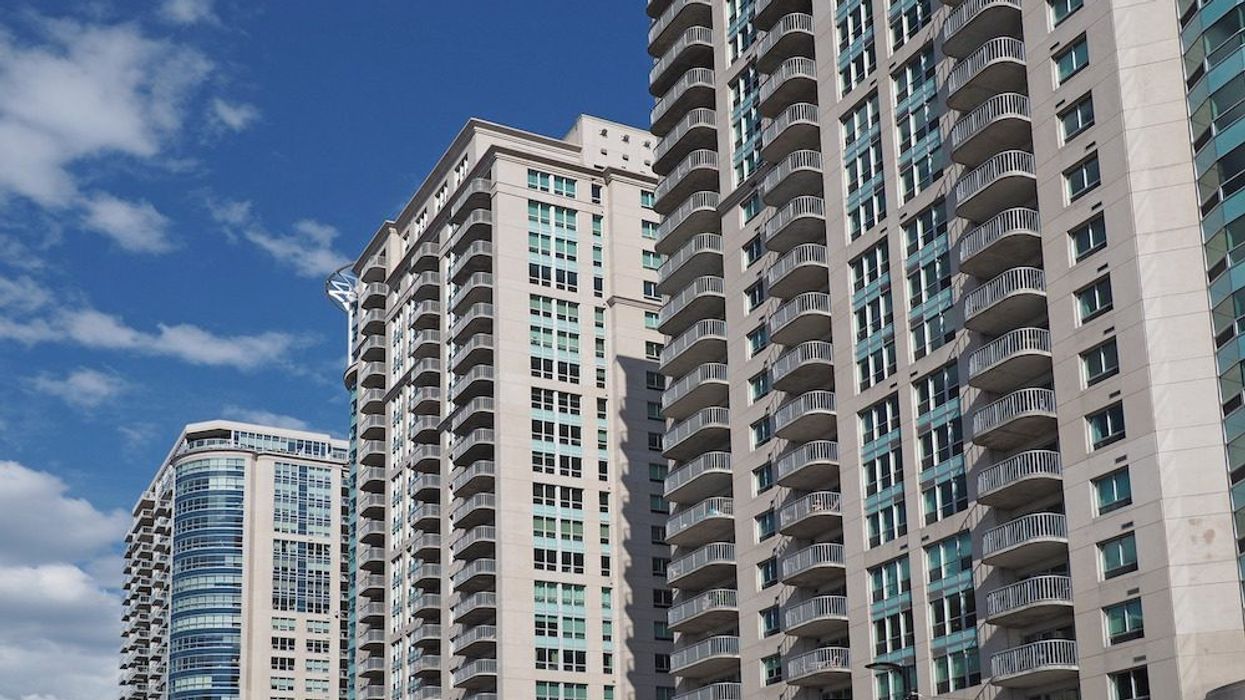With the Ontario Progressive Conservatives now firmly ensconced in power for the next four years, the province’s housing advocacy groups expect to see some action. In particular, it’s time for key recommendations made earlier this year by the province’s own housing committee.
“Now that they have a mandate, they should implement the recommendations from the Housing Affordability Task Force,” Bilal Akhtar, a volunteer member of housing advocacy group More Neighbours Toronto told STOREYS.
“The ones that we would emphasize the most is getting rid of exclusionary zoning and allowing four units and four storeys on every residential lot, as of right. That would be by far our biggest focus. That’s not to say that they shouldn’t prioritize things like a public builder, or more funding for affordable housing, and also transit-oriented development would also be a secondary piece to getting rid of exclusionary zoning,” he says.
READ: As the Ontario PCs Win Second Term, It’s Time to Build, Says Industry
MNTO had expressed sharp disappointment when such measures were excluded from the province’s Budget in April. However, the organization, which champions supply creation in the GTA, has been strong supporter of the PCs due to their willingness to take bold action on their housing vision. Akhtar points to similar proposals released by the NDP and Liberals during the election campaign around ending exclusionary zoning (the Liberals specifically said they would allow three units and two storeys on previously-zoned single family lots).
“We criticized that as being too middle ground and not willing to upset NIMBYism and municipalities, but both parties put out endless platitudes to working with municipalities which shows a lack of understanding of the severity and urgency of the problem and also, a lack of political will to challenge opposition,” he says. “So we hope that the PCs with their strong mandate can, at the very least, end exclusionary zoning, even when there is opposition from municipalities because there will be opposition, and they need to be ready to challenge that.”
Affordable Housing Measures Left Off the Docket
Other key housing issues that remain murky in terms of the PC’s priorities are affordable housing and renter protections -- terms that were left out completely in their communications, from the HATF recommendations, to the provincial Budget, to their political housing platform.
“They’ve made few commitments to affordable housing in any of their election press releases or media statements, so it is fair to say that we don’t know what to expect,” Akhtar says. “But we would want them to strike another ‘affordable housing task force’ -- not a housing affordability task force -- and bring in some recommendations that are in line with what all the other parties proposed such as building 150,000 subsidized affordable housing units. I know that they’ve committed to building $1.5M units total, but committing to affordable housing would go a long way recognizing that chronic homelessness needs to end. That’s something that all the other parties agreed on.”
Finally, he says, the organization wants to see the implementation of a public builder, so that new housing creation is no longer created at the whims of investors motivated by profit. “We don’t want housing supply to be driven by the ebbs and flows of investor demand in housing, because that can come and go, and right now, that might be going a little. We want a public builder to be able to guarantee a baseline supply of housing at all times. That’s what the NDP and Liberals committed to, and they can do that moving forward,” Akhtar adds.
Douglas Kwan, Director of Advocacy and Legal Services at the Advocacy Centre for Tenants Ontario (ACTO) congratulates the PCs on their win, as the organization worked with them on renter issues over the last four years, including on the HATF.
What needs to be addressed most urgently, he says, is to stem the loss of existing affordable housing stock.
“I think there's been lots of discussion from all sides of the spectrum and from everyone from landlords and tenants, that there is a truly an affordable housing crisis,” he says. “And one of the things that we're hoping that this incoming government will see is that we're losing more affordable units that we're creating, that’s even with the best projected estimates. There's no way we can make up for all that's being lost.”
That only way to address the issue he says, is some measure of rent control; in their first term, the Ford government rolled back sweeping rent and vacancy decontrol measures put in place by the former provincial Liberal leadership, meaning any unit created after November 2018 can see rents increased above the provincially-mandated guideline upon new leases or renewal. Once a unit’s rent starts to escalate beyond the affordability of the average Ontarian, it’s generally forever lost as affordable stock, he says.
“We're hoping that the government takes another look at this policy, to see whether or not it still makes sense, because the original idea to for this exemption was to spur on private development of purpose-built rentals,” he says. “And what we've been seeing is that purpose-built rentals or apartment buildings are going on, but they're more for the luxury segment, calling for $2,000 a month in rent or more. But that's not what many people consider affordable.”
“So that's what we're hoping to see in the next four years from this government because without fixing the loss of our affordable housing, we can't really tackle the affordable housing problem. It's like filling up a bathtub when the hole is almost the size of the bathtub itself.





















